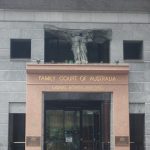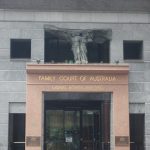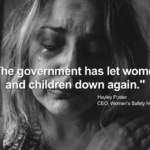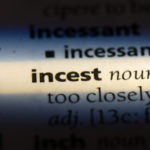Expert Family Court Witness Guilty of Child Sexual Assault
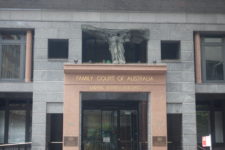
Bob Montgomery, a psychologist who spent time working as an expert witness for the family court, and was also the psychologist for the TV reality show Big Brother, has pleaded guilty to historical child sexual abuse.
He faces up to 14 years in in prison after pleading guilty to sexually abusing boys while he was a Scoutmaster in Sydney in the 1960s.
He was charged by police earlier this year and has pleaded guilty to two counts of buggery (also known as sodomy or anal intercourse), five of indecent assault of a male and one of procuring an indecent act. Buggery and indecent assault of a male were discrete criminal offences before they were abolished by amendments to the Crimes Act 1900 (NSW) in 1984.
Mr Montgomery’s sentencing hearing is scheduled to take place in the District Court of New South Wales later this month.
Child residence and contact rulings in question
Revelations of the abuse have also prompted a review of custody cases in which Mr Montgomery was involved. The psychologist spent years as a Family Court ‘writer and single expert witness’, providing reports and opinions in dozens if not hundreds of cases.
Family lawyers explain that these positions wield a great deal of power in the Family Court. Mental health experts are relied upon to provide assessments of family dynamics, as well as the credibility of child physical and sexual abuse allegations in residence and contact disputes.
Given that during his tenure with the Family Court, Mr Montgomery was a significant voice in parenting cases, the charges and his guilty plea could pave the way for some rulings to be quashed.
It is important to note though, that Mr Montgomery always worked in the role of ‘private expert.’ Private experts are usually engaged by and paid for directly by parties or Independent Children’s Lawyers — not the court.
In-house experts, known as family court consultants on the other hand, are employees of the court.
The Family Court says that it has conducted a review and found just six judgments involving MT Montgomery, four of which related to parenting cases, and two in which Mr Montgomery’s appointment as single expert witness was rejected, but it is possible that more cases that may have been settled out of court might need to be reviewed and it is possible that parents could grounds to seek to overturn custody rulings, if Mr Montgomery was involved in their cases. And any families who believe they may be affected is urged to contact the family court.
The role of the ‘expert witness’ in Family Court
The charges against Mr Montgomery have put the powerful role of expert witnesses in the Family Court under the spotlight again.
These roles came under scrutiny in a recent Australian Law Reform Commission (ALRC) report calling for sweeping changes to the system, recommending that the Family Court introduce mandatory accreditation for family report writers and lift the veil of secrecy around them after concerns about the quality of their reports and qualifications.
The ALRC found there was no effective way of holding report writers to account if they failed to meet professional guidelines set by the court.
In New South Wales, in 2018 a group of parents banded together to accuse a family court ‘expert’ of “grossly inaccurate and incomplete” recording of interviews, as well as “misdiagnosis”, and the application of “unscientific theory” in reaching his opinions, which have carried a great deal of weight in court.
The writer was referred for investigation, and the Medical Council of New South Wales has now was subsequently tasked with investigating the complaint.
Of course, if these experts get their observations wrong, it impacts lives, and in recent years several cases have come to light where experts did get it wrong and children were sent to live with abusive parents.
In 2016 Bravehearts, a child sexual assault awareness organisation with a focus on prevention. released a report of an independent inquiry into the experiences of families in their dealings with the family courts.
The report titled ‘Abbey’s Project’ identified fifteen case studies where children have been put into the care of a parent or carer, who’s either been convicted or under suspicion of child sex offences.
The Government has yet to respond to the ALRC report, but says that it will do so ‘in due course.’ However, there is a great deal of pressure to change the way ‘experts’ are accredited and used in the system, so they are able to contribute professional opinion, but have much less impact on the outcome of parenting cases.


